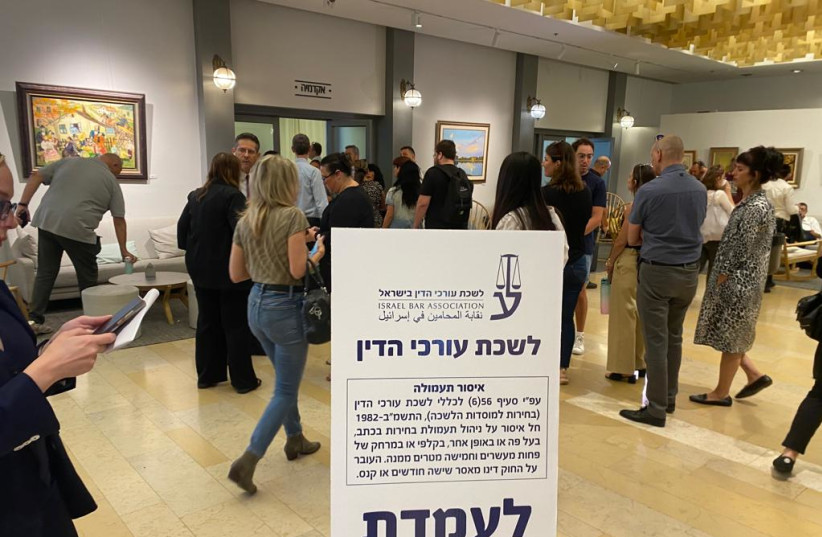Yesh Atid and an NGO separately petitioned the High Court of Justice on Tuesday to order Justice Minister Yariv Levin to convene the Judicial Selection Committee, after weeks of refusal to assemble the panel.
The Yesh Atid petition argued that the decision not to convene the panel was against the public interest and fairness. The committee needed to be assembled in due haste to begin appointments to fill the dearth of judges in the judiciary.
The committee had not been convened since April 2022. The Movement for Quality Government in Israel, which filed its own petition Tuesday, said that it was a dereliction of duty not to convene the panel, which harmed the legal system and denied citizens the ability to have their day in court.
"Every additional day that the committee does not meet to elect additional judges, the burden on the courts increases and harms the citizens of the country," said MQG. "It seems that the Justice Minister is abusing his authority for his personal political considerations -- we have no choice but to appeal to the Supreme Court to intervene."
Levin had been trusted as the justice minister to convene the committee, but according to the Yesh Atid petition, had refused to do so in an effort to prevent the panel's regular activity until he had succeeded in passing legislation to change the composition and rules of the committee in line with the judicial reform. Levin said in July that he would not convene the committee until it had been reformed.
Judicial Reform targets Judicial Selection Committee

MQG said that Levin's decision was done in bad faith and was an act disproportionate to the rights that it violated.
The altering of the Judicial Selection Committee has been a key component of the judicial reform since it was announced by Levin on January 4. Reformists seek to put more elected officials on the panel ostensibly to make it more democratic. In the most recent proposals, the changes would create an automatic majority for any coalition.
A bill to change the committee reached the Knesset table for final readings in March, but intense protests led to a legislative freeze. The bill had not been revived in the renewed push for Judicial reform in June.
On June 20, Israel Bar Association Elections were held, with a vehemently anti-reform chairman, Amit Becher, securing his position. The Bar Association has two representatives on the Judicial Selection Committee, which reformists argue forms a natural and nepotistic majority voting bloc with three justices on the panel.
Soon after, the Knesset had to elect its own representatives to the Judicial Selection Committee. According to Yesh Atid, the coalition sought to postpone the vote but failed. On June 14 Yesh Atid MK Karine Elharrar was elected to the panel, which traditionally has had one opposition and one coalition member.
A second Knesset member wasn't chosen, and judicial reform talks, which had continued from March, broke down over the tensions. On July 12, Otzma Yehudit MK Yitzhak Kreuzer was elected to the panel in a second vote, but the panel was still not convened.
